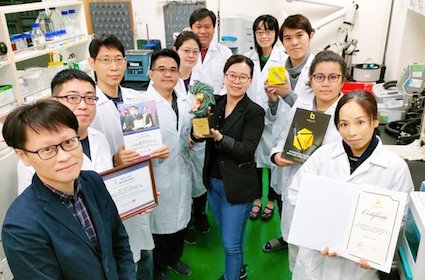
Image credit: prnewswire
Taiwan-based Charsire Biotechnology Corp has successfully developed a revolutionary new drug (BAC) for Alzheimer's disease and vascular dementia using its patented technology of Multi-Glycan Complex and soybeans as raw materials. BAC has completed Phase II clinical trial of the FDA.
According to the World Health Organization, dementia is currently the seventh leading cause of death. The total social cost of dementia worldwide is estimated at $1.3 trillion and will reach $2.8 trillion by 2030. Effective dementia drugs are an urgent problem for the medical community. The drugs currently on the market are all palliative, and there is no specific medication. Furthermore, they all have significant side effects.
According to the Founder and CEO, Chih-Yi Weng, "Charsire has established a new drug development platform for new glycan drugs. Currently, the focus is on high market value drugs for Alzheimer's disease and vascular dementia. The MGC platform will generate more new drugs in the future."
Current drugs for Alzheimer's disease relieve symptoms by reducing the accumulation of proteins such as beta-amyloid, but they do not help nerve cells repair. The fundamental problem is not solved. By contrast, Charsire's new drug BAC helps improve Alzheimer's conditions by improving blood circulation in the brain, reducing inflammation, and promoting nerve cell regeneration.
Results of the BAC Phase II clinical trial showed that 79% of patients maintained or improved at week 4 in the group of patients who used BAC without any dementia medication. This trend continued steadily through week 12 and reached 86%. Not only were the results promising, but no side effects were found in patients.




